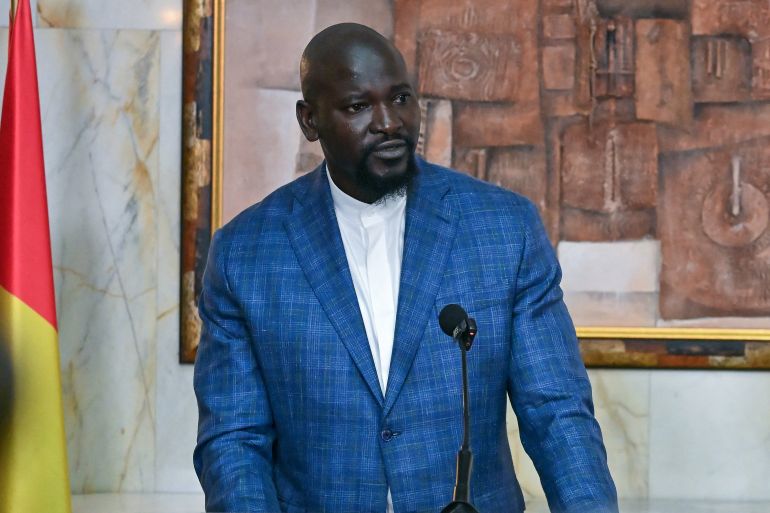Guinea military rulers suspend three opposition parties before referendum
Move comes as draft constitution is being put to a vote next month, raising fears for democratic transition.

Published On 23 Aug 202523 Aug 2025
Guinea‘s military rulers have suspended the country’s three main opposition parties, including that of former President Alpha Conde, in the run-up to a constitutional referendum next month.
The order on Saturday prevents Conde’s Rally of the Guinean People, the Union of Democratic Forces of Guinea, led by former Prime Minister Cellou Dalein Diallo, and the Party of Renewal and Progress from engaging in any political activities for 90 days with immediate effect.
Recommended Stories
list of 3 itemsend of list
“These parties have not fulfilled the obligations required of them,” the order stated.
In a separate order read on state television late on Friday, Guinea’s military rulers also declared that the start of the election campaign period for a revised constitution had been pushed back a week, to August 31.
Since Friday, parties have been allowed to advertise their proposals for a new version of the constitution. The referendum is scheduled for September 21.
The suspension comes as the West African nation’s main parties and civil society groups prepared to hold demonstrations from September 5 to condemn what they see as a power grab by military leader General Mamady Doumbouya.
The country’s opposition has come out against the referendum on a new constitution organised by Doumbouya, who took power in September 2021 when a coup toppled Conde, who had been president for 10 years.
Doumbouya’s military-run government has banned all demonstrations since 2022, and it has arrested, prosecuted or pushed into exile several opposition leaders.
Advertisement
Reporting from Dakar in neighbouring Senegal, Al Jazeera’s Nicolas Haque said that for Guinea’s opposition parties, Saturday’s suspension “strips away any pretence that the transition was actually working to protect democracy”.
“When Colonel Doumbouya came to power in a coup … he promised not only to bolster democracy but to give more space to political parties and civil society,” Haque explained.
“What we’re seeing now is three main political parties – including the one of the former president, Alpha Conde – banned, unable to go out and canvass, to post [on] social media. It feels for them like a clamping down on their voice.”
Haque added that the move will prompt more people to take to the streets in protest. “We’re going to see more people going out on the streets, confronting the security forces,” he said.
A draft constitution was presented to Doumbouya in June.
Its text opens the way to a return to civilian rule, though it does not make clear whether Doumbouya could stand as a candidate in the next presidential election.
A “transition charter” drawn up by the military government shortly after the coup had stipulated that none of its leaders, government members or heads of institutions would be able to stand in elections.
The adoption of a new constitution could do away with that restriction, in a country that has spent decades ruled by dictatorial governments.
